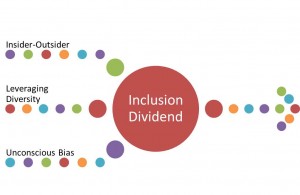 Marissa Mayer, CEO of Yahoo!, set off a storm of chatter about the viability of working from home. Like the next domino falling Best Buy quickly took advantage of the situation and announced a major modification of their ROWE (Results Only Work Environment) policy. It was not too long ago Best Buy was heralded for creating a much more flexible working culture for their home office employees. They received all kinds of positive coverage about them reducing unneeded meetings and retaining a higher quality of employee. Their modification was to have working from home be Manager approved. The prior iteration was a company-wide policy which did not give the manager any authority.
Marissa Mayer, CEO of Yahoo!, set off a storm of chatter about the viability of working from home. Like the next domino falling Best Buy quickly took advantage of the situation and announced a major modification of their ROWE (Results Only Work Environment) policy. It was not too long ago Best Buy was heralded for creating a much more flexible working culture for their home office employees. They received all kinds of positive coverage about them reducing unneeded meetings and retaining a higher quality of employee. Their modification was to have working from home be Manager approved. The prior iteration was a company-wide policy which did not give the manager any authority.
Mayer took a much sharper turn to its long-standing flexible working environment for quite some time. The hammer came down making working from home no longer an option. Both companies (and we are sure many to follow) saw an absent employee base as a drain on innovation and cohesion. The philosophy is a diverse set of individuals physically occupying the same four walls has a far greater chance of creating synergy than digital reproductions via email, skype or phone.
Furthermore what was missing in the old formula was any leadership development on managing remote teams. It is a much higher challenge to create a culture of inclusion remotely. Dynamics of difference get multiplied when the only communication is relegated to random daily touch points and monthly meetings. We have found in our Global Management: Leading Across Boundaries development that leaders need a higher sense of awareness and skill set when managing remotely to fully leverage a diverse team.
So what should Yahoo! and Best Buy now expect when home dwellers suddenly are required to interact 9+ hours a day with their teams?
- First, they will discover innovation is not created by just throwing the team in the same cubicle. It will require proactive deft leadership to manage dynamics which are quickly created with this onsite team culture.
- Second, as humans a whole other layer of unconscious bias will kick in when we have visual daily contact. This bias will interfere with critical decision making and may derail the intended purpose of a more productive team.
- Third, insider-outside groups which did not exist in a remote independent culture will form. Some will call them cliques. They can be damaging to an organization’s desire for a meritocratic system.
Hopefully, both companies, and those that follow, will proactively provide leadership with skills development to head off any potential kick-backs to this very dramatic culture change. The “can’t we just all get along” wish will not work. Executive management needs to understand any major cultural shift will require the leaders first to be equipped to manage the impact while simultaneously moving towards the goal. If done correctly, management can truly achieve an inclusion dividend which will increase innovation, productivity and employee engagement.


Recent Comments